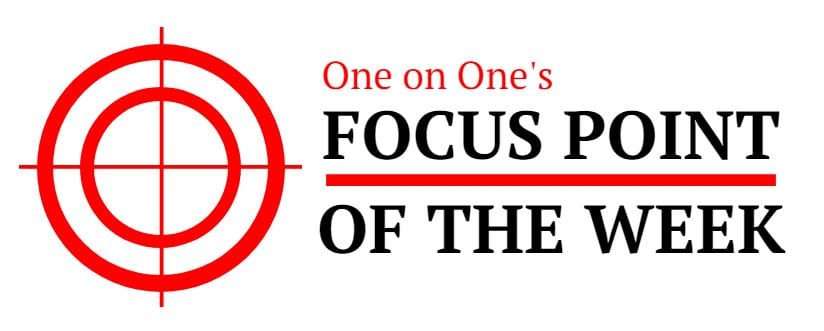
Strategies for Success
At One on One, we care about our clients positioning themselves to live their lives to the fullest…healthy and happy.
Through the month of December, we are going to focus on personal/professional development through our FPOTW Series: “Strategies for Success”. Hopefully, these key concepts will motivate, educate and inspire you to reach your goals and realize your potential in 2024.
We look forward to helping you start the New Year off right!
Inventory Taking
By Bruce Burke
Last Updated: 12/17/23
In previous Strategy for Success posts, we discussed the importance of “Goal Setting” and “Connecting the Short Term with the Long Term.” This week, we are providing a tool to stay on track and help you succeed. We call it “Inventory Taking.”
Simply put, Inventory Taking is the act of formally examining our efforts and habits in all areas of our lives (relationships, career, health, etc.). It is a proactive process that helps us identify if we are on track to attain our goals. It allows us to feel good about our successes and addresses potentially harmful behaviors without experiencing the consequences of wrong assumptions, dwindling motivation and bad habits such as procrastination.
How do we take inventory?
Create Inventory Questions
Inventory questions should relate to the strategies you have developed to achieve your goals. For example, if your goal is to get a raise at work, ask yourself:
- Do I know what management expects of me?
- Do I have the tools to succeed?
- Are the criteria for success clear?
- On a weekly basis, am I meeting those criteria?
If the goal is to make your health a top priority, go through the same process:
- Is my strategy for success well-defined and reasonable?
- Do I have the tools to succeed?
- Am I implementing my strategy successfully or letting the same old roadblocks sabotage my efforts?
If the answer to an inventory question indicates a problem, you must dig deeper, determine the source of the problem, and create new strategies. When all of the answers are positive, you must ask yourself a final, very important question: “How do I know?” This often means getting someone else involved so that you can benefit from a different perspective.
Communicate
Getting a different perspective corrects some of the most basic problems with taking inventory. Communicating proactively and enlisting support from others can help focus your efforts and improve progress towards your goals. On the flip side, making assumptions, setting the bar too low, or simply “not knowing what you don’t know” can sabotage your success. For example, you might think you are meeting the criteria for a raise, but how do you know? The answer is pretty simple: ask your boss! That will allow you to either proceed with confidence or to make the changes necessary to succeed. Don’t assume anything, and don’t leave your success up to chance.
Be Proactive
Inventory as often as you decide is necessary to be successful and stick to your schedule until you start to see results. If you are succeeding with goals that you are inventorying weekly, you can probably begin to inventory those items monthly or quarterly. Don’t get bogged down in thinking that this will take too much time. What many of us fail to realize is that we are going to spend time on these issues anyway. The difference is that we are being proactive and fostering success rather than being reactive and dealing with problems. It is amazing how often we feel like life keeps throwing us curveballs, when the reality is that we are throwing them at ourselves!
Finally, avoid starting the New Year fast out of the gate only to slip back into bad habits. Inventory your behavior, reset your strategies, and ensure success in achieving your goals!




